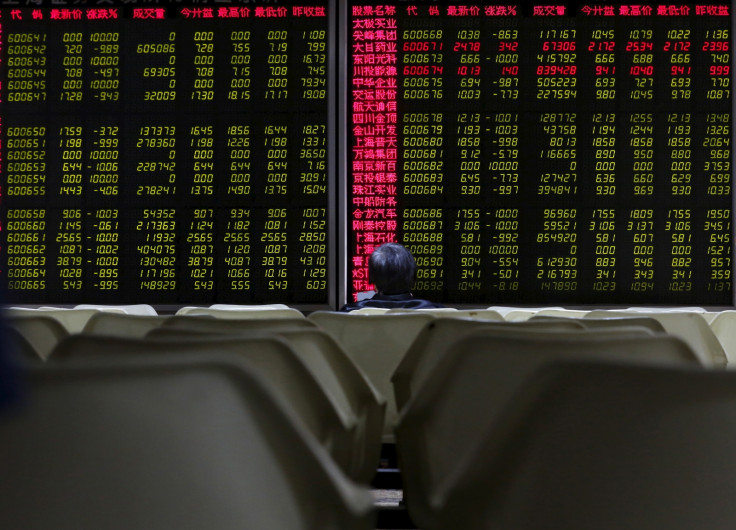China shares fall despite interest rate cut

Chinese shares finished in negative territory after a highly volatile session on 26 August, despite Beijing's latest efforts to boost growth and reassure investors. The Shanghai Composite index closed down 1.3% to 2,927.29 after shedding more than 15% in the preceding two sessions.
Shares in Hong Kong followed the mainland lower, with the benchmark Hang Seng closing down by 1.5% at 21,080.40 points. The fall came despite the People's Bank of China (PBOC) cutting its key lending rate by 0.25 percentage points to 4.6% and easing its reserve requirement ratio - which dictates the amount of capital banks must hold in reserve - by 50 basis points on 25 August.
Markets elsewhere in Asia reacted positively to the PBOC's monetary easing. The region's biggest stock index, the Nikkei 225, finished 3.4% higher at 18,376.83 to break six straight sessions of losses, while the Kospi rose 2.6% to 1,894.09. In Australia, the S&P/ASX 200 closed up 0.7% at 5,172.78.
Earlier, a volatile trading session on Wall Street saw all major indices close in the red on 25 August, reversing gains made earlier in the day. Share markets across the world have tumbled over the past week due to a mixture of disappointing economic news from China and worries about the impact of falling oil prices.
Analysts downplayed the significance of the Chinese central bank's latest interest rate cut – the fifth rate reduction since November last year. "Monetary easing may be effective in prompting buy-back in oversold risk assets but it is not enough to brighten the economic outlook, which market players are concerned about," Makoto Noji, senior rates strategist at SMBC Nikko Securities, told Reuters.
"When China is curtailing excessive investments, monetary stimulus would not boost China's demand much. Rather if it ends up weakening the yuan, it would fuel competition in devaluation."
The central bank set its daily fixing rate for the yuan at 6.4043 per US dollar on 26 August, its lowest level in four years. The central bank devalued the currency by nearly 2% on 11 August to help its exporters, sparking global concerns that China's economy was weaker than previously thought.
"Asia remains the epicentre of the current market instability. Market 'stability' will then come from this region - however the slide in China and Japan suggest sentiment is ruling price action and hyper-fear trading is still in control," Evan Lucas of IG was quoted as saying by AP.
But China's state media insisted that fears over the country's economic health were greatly overstated. "The plunge of stocks, the depreciation of China's currency and its slowing growth pace after years of high-speed development have all put a question mark on the health of the world's second largest economy," the Xinhua news agency said.
"However, such a worry is completely unnecessary. China's economy will remain robust and the positive prediction on its future should not be affected by the current fluctuation of stock markets."
© Copyright IBTimes 2025. All rights reserved.


















